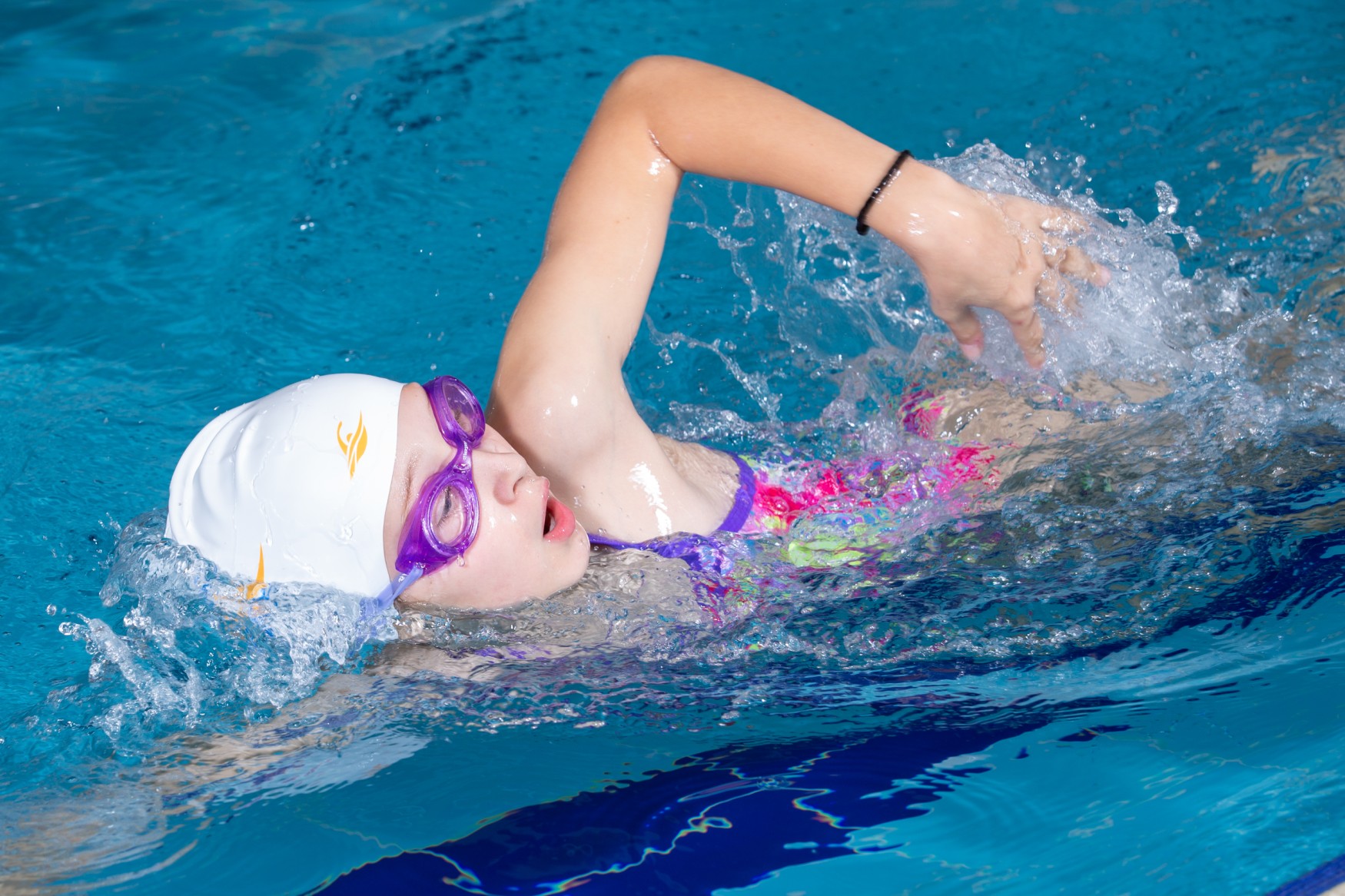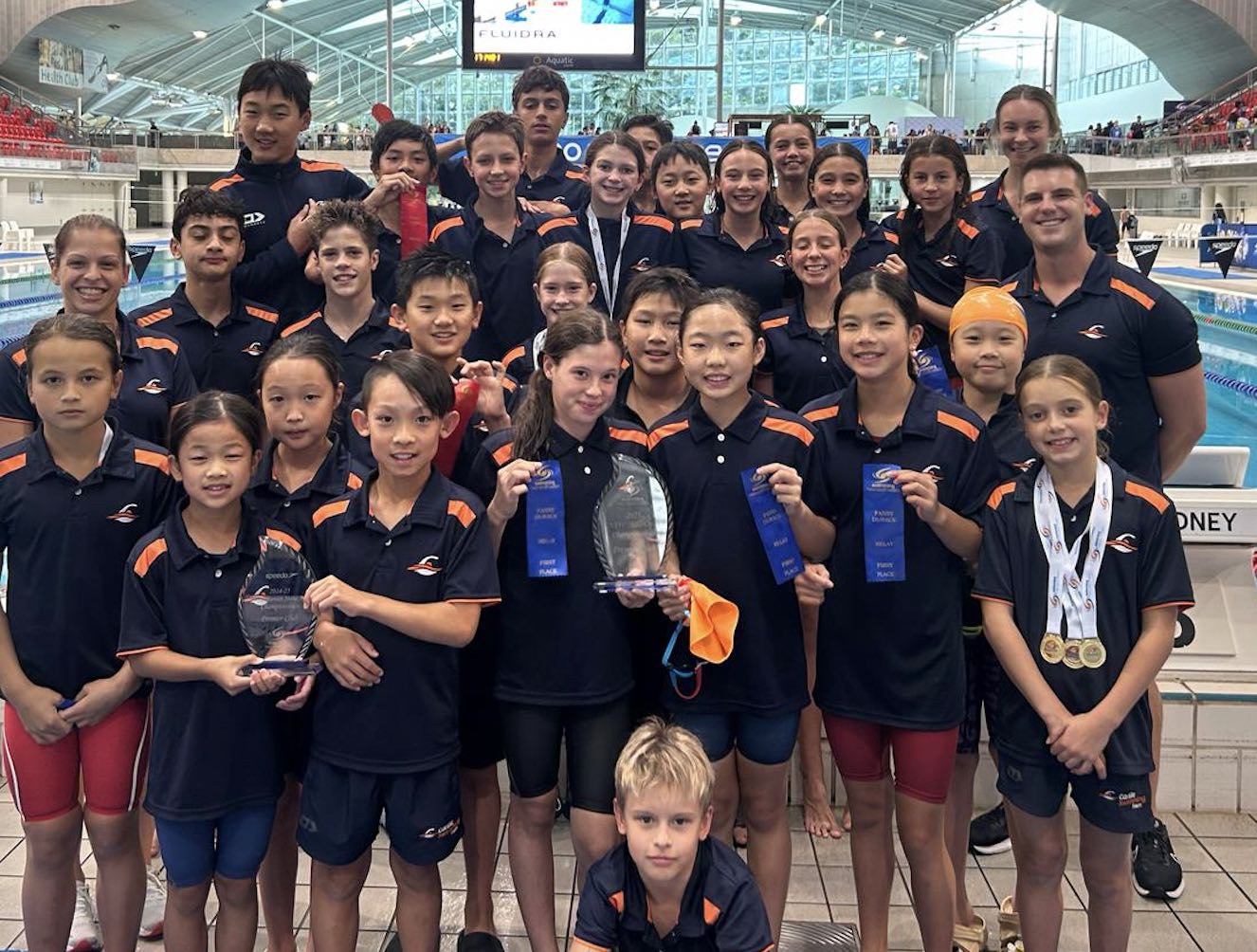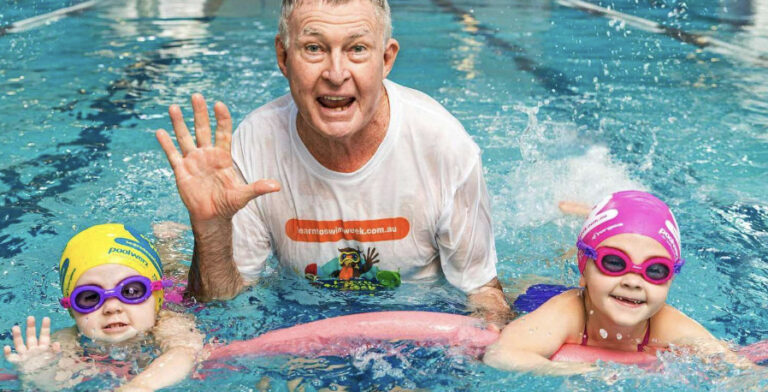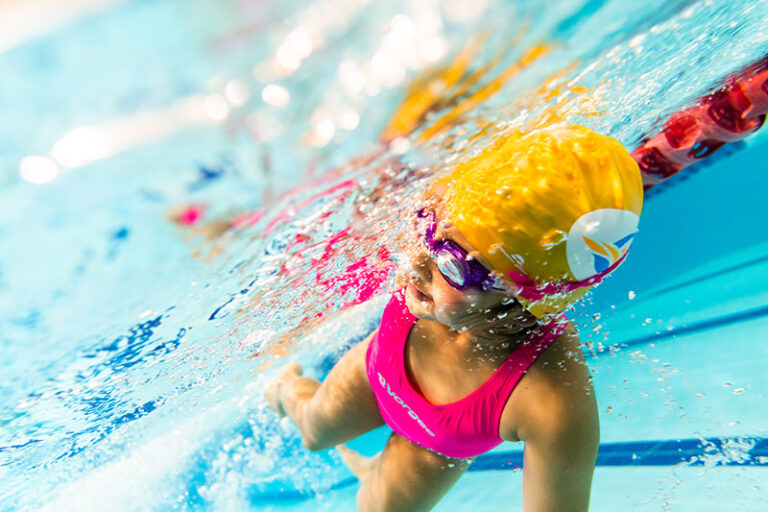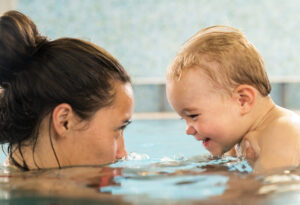
Can you really teach a baby to save itself from drowning. The short answer is yes, baby swimming lessons can save a life. But short answers never tell the full story.
No baby or toddler is safe alone around water, no matter how many baby swimming lessons they have done. A responsible adult must always be on the lookout and within arms reach.
Can a baby learn the skills in swimming lessons to buy a precious few moments that could avoid a tragedy? Yes.
But remember in an emergency every second counts. Learn CPR and if your child is missing, look in the pool first.
Carlile pioneered baby swimming lessons in Australia.
Carlile opened Sydney’s first indoor baby teaching pool and has led the industry ever since.
While swimming lessons are no substitute for proper supervision, our lessons are designed to help little ones first be comfortable in the water and then learn key life saving skills.
The first thing to remember about drownings, is that they are usually silent killers. The majority of drownings in children under four occur when they accidentally fall into water. Small children fall and most often sink without a sound.
That’s why locking the gate, ensuring the fences are safe and there is no way for a child to climb into a pool is your first defence.
Your next defence is constant adult supervision. However, for long-term safety there is no substitute for children learning to swim well.
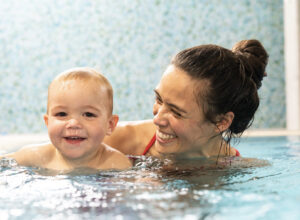
Water Baby classes are all about confidence. Getting used to the water and feeling at home in it. While the games and songs look like fun, they all have a purpose.
“An inexperienced child will panic when confronted with unfamiliar experiences. Building confidence and familiarity in the water reduces a child’s likelihood to panic,” says Carlile Swimming’s head of curriculum Dave Dubois.
Mr Dubois is regarded as one of the world’s foremost experts in learning to swim and he knows the key is children having fun, learning skills at the right pace and growing in confidence. It all starts with getting used to water around their faces and eyes.
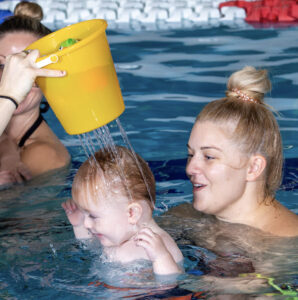
Never sink or swim
If you are looking for a learn to swim school that forces children into the water Carlile is not for you. At Carlile nervous children are never forced into anything. Games and toys are used to encourage them to explore in their own time.
In a Waterbabies class, one of the first things children learn is to float. They also learn to swim without goggles. If they fall, odds are they won’t be wearing goggles.
Developing balance and flotation comes easier when babies start young and it is also important they do so without floaties. Again, if your child accidentally falls into a pool, chances are they will not be wearing floaties.
Floaties give a false sense of security and make learning to swim correctly more difficult.
Back floating an important skill
With your support, your little one can start learning how to float on their back – it’s amazing to see them relaxed and breathing comfortably!
“Turning and back floating is important, it’s a place to rest, recover and regain breath which will buy children time in an accident and every second counts. Back floating also extends the distance they can cover,” Mr Dubois said.
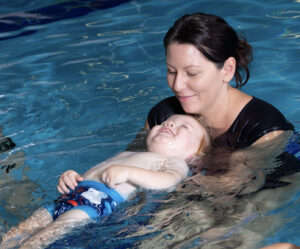
Another important aspect learnt in a water confidence is submersions and breath control on command. Again these are never forced.
Preparing your baby for their first underwater experience can be made less daunting through conditioning them to hold their breath in response to a verbal cue, such as “ready go” – you can try that in the bath at home tipping water over your bubs head.
‘Showers’ over the head with a bucket of water is the first step to allowing babies to feel comfortable with water going on their face without ingesting it. Once the baby has mastered good breath control the parent and teacher can easily submerge the baby. Eventually they will be jumping in themselves, this starts from running off the mat.
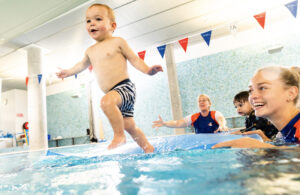
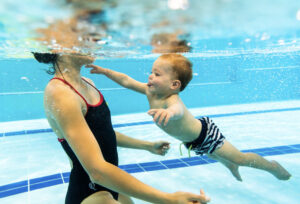
And as they grow in confidence they are encouraged to not just submerge but propel themselves, first to their parent.
“After establishing initial comfort we extend that into propelling with paddles and kicks which allows a child to do things like return to the side of a pool if they fall in and get themselves to safety,” Mr Dubois said.
Baby Swimming lessons build confidence
Children also have the chance to experience some independence whilst in this class, alongside parents strict supervision. You can watch your baby experiment with independent splashing, playing with toys and to establish their balance all whilst exploring their boundaries in the water such as the difference between shallow and deep water.
“There is no better place for a baby to be than in the water with mum and dad, experiencing the joy and wide range of developmental benefits that swimming offers,” Mr Dubois says.
While learning to swim is first and foremost a lifesaving skill, the benefits go much further. Australia’s Griffith University conducted a ground-breaking four-year research study and found that 3 to 5 year olds who attend regular swimming lessons were:
- 11 months ahead in verbal skills
- 6 months ahead in mathematical skills
- 2 months ahead in literacy skills
- 17 months ahead in story recall.
So as you can see, there are lots of songs to sing and games to be played, all with a purpose! Any teacher knows fun is where learning starts and confidence grows. Games, songs and play keep your little one engaged. It’s also a great bonding experience, you’re in the water having fun with your child!
Babies can start lessons at as young as three months, ensuring that they are learning in warm water to allow comfort, and many of these skills can be practised at home in the bath as well! You can read more about the Carlile approach to baby and infant swimming here

